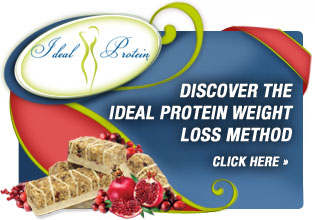By Nina Nethery
www.LoCarbDiner.com
Holiday time is nearly synonymous with eating sweets. If you are giving chocolates and other goodies to diabetics or carbohydrate-conscious dieters, they will appreciate your gift if you are careful to choose the tastiest and healthiest sugar-free varieties you can find – or bake!
Sugar substitutes have always been controversial. The most readily available ones seem to have the most negative side effects, and the newer ones are not yet available in cost-effective forms. This will change over time as public awareness and demand for the healthier sweeteners increases. For now, we are advised to use artificial sweeteners in moderation to satisfy cravings, but not as a regular part of our daily meal plan.
Numerous current studies recommend avoidance of aspartame. Marketed as NutraSweet® and Equal® (the blue packets), aspartame is commonly found in diet sodas and grocery-store varieties of sugar-free snacks. Despite FDA approval as a safe food additive, aspartame has been linked to many worrisome symptoms such as memory loss, migraines, depression, fatigue, irritability, insomnia, vision problems, heart palpitations, anxiety attacks, tinnitus and joint pain. Aspartame is also suspiciously linked to many more serious illnesses! The Atkins Center pointedly advises the avoidance of aspartame.
The least controversial and most readily available sugar substitute at present is sucralose, marketed as Splenda® (the pale yellow packets.) Derived from sugar and approximately 600 times sweeter, sucralose passes quickly through the body’s digestive system without raising blood sugar levels or accumulating in tissues. In addition, it does not lose its sweetness when heated, so it can be used in cooking and baking. Look for the bulk form that will substitute measure-for-measure for the sugar in your recipe.
Second to sucralose is saccharin, marketed as Sweet ’n Low® (the pink packets.) The FDA recently removed saccharin from its list of carcinogens, stating that there is no clear association between saccharin and human cancer. It can be safely consumed in moderate amounts, no more than three packets a day.
Sugar alcohols or polyols are commonly used in bulk form to sweeten sugar-free candies, cookies, ice cream, and chewing gum. The most common forms are maltitol, sorbitol, xylitol and erythritol. Low-carb dieters know that sugar alcohols can be subtracted from daily carb counts because these ingredients do not impact blood glucose levels. In addition, sugar alcohols are lauded for not promoting tooth decay!
All sugar alcohols may produce a laxative effect in some individuals. Maltitol, commonly used in chocolates and sugar-free syrups, has been known to trigger cramping, bloating, gas, and diarrhea when “too much” is eaten at once. How much is too much? Each person must discover their own limit. Very sensitive folks may have a reaction after 1 candy bar. Also, there are different grades of maltitol, so try different products to determine if some are more acceptable than others.
Xylitol, another polyol, is fast gaining favor for its taste and health benefits. Xylitol is a naturally-occurring sweetener found in many vegetables and fruits such as raspberries. It is typically produced from birchwood or corn cobs. Xylitol has been proven to inhibit the growth of bacteria, so it may fight tooth-decay and ear infections. It may also reduce plaque build-up and help build strong bones. Xylitol looks and tastes just like sugar and it leaves a lingering sweet taste in your mouth.
Stevia is a South American herb with natural sweetness and a subtle licorice taste, about 300 times sweeter than sugar. Although this herb has been used as a sweetener in Japan for over 25 years with no ill effects, it has not yet been approved in the US as a food, so stevia is sold only as a nutritional supplement in health food stores.
Sugar substitutes tend to have a synergistic sweetness. That is, a combination is sweeter than the sum of the individual sweeteners, resulting in improved taste as well as economic and stability advantages. In the future, look for products that use a mixture of various sweeteners including maltitol, sucralose, erythritol, and acesulfame potassium.
Note: Much of the information for this article came from the Atkins Center website, www.Atkins.com. Please visit this site for more information. LoCarbDiner.com is a certified Atkins Retail store.
|
|

